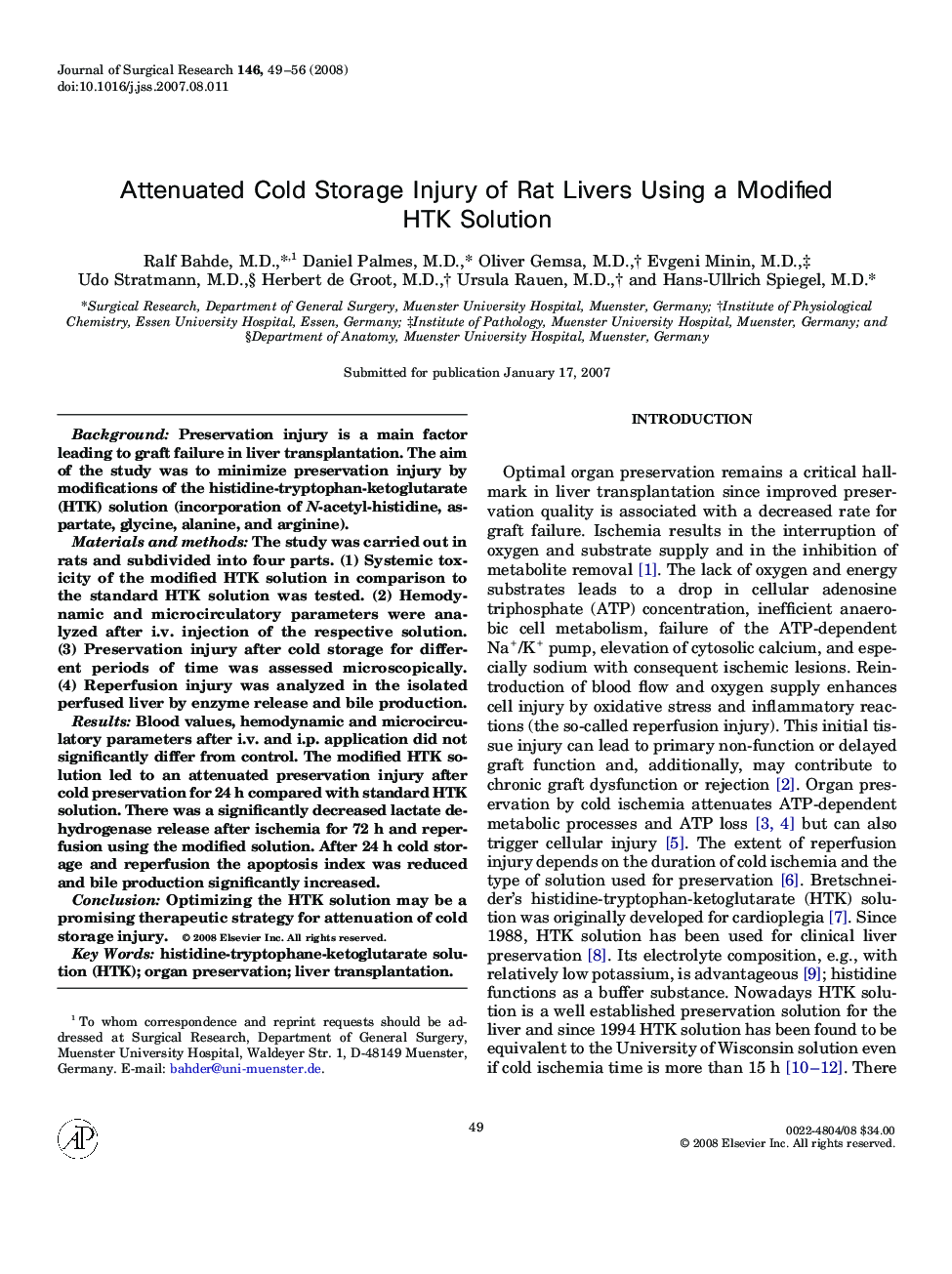| Article ID | Journal | Published Year | Pages | File Type |
|---|---|---|---|---|
| 4304205 | Journal of Surgical Research | 2008 | 8 Pages |
BackgroundPreservation injury is a main factor leading to graft failure in liver transplantation. The aim of the study was to minimize preservation injury by modifications of the histidine-tryptophan-ketoglutarate (HTK) solution (incorporation of N-acetyl-histidine, aspartate, glycine, alanine, and arginine).Materials and methodsThe study was carried out in rats and subdivided into four parts. (1) Systemic toxicity of the modified HTK solution in comparison to the standard HTK solution was tested. (2) Hemodynamic and microcirculatory parameters were analyzed after i.v. injection of the respective solution. (3) Preservation injury after cold storage for different periods of time was assessed microscopically. (4) Reperfusion injury was analyzed in the isolated perfused liver by enzyme release and bile production.ResultsBlood values, hemodynamic and microcirculatory parameters after i.v. and i.p. application did not significantly differ from control. The modified HTK solution led to an attenuated preservation injury after cold preservation for 24 h compared with standard HTK solution. There was a significantly decreased lactate dehydrogenase release after ischemia for 72 h and reperfusion using the modified solution. After 24 h cold storage and reperfusion the apoptosis index was reduced and bile production significantly increased.ConclusionOptimizing the HTK solution may be a promising therapeutic strategy for attenuation of cold storage injury.
